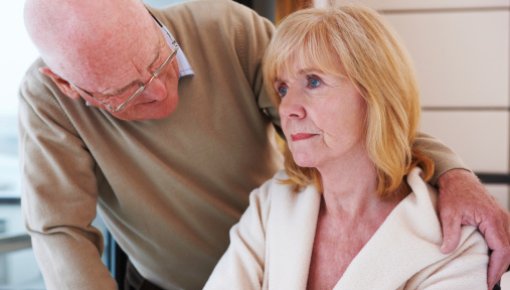They wanted us to decide at once
There were a lot of things I didn’t like at the hospital. The doctors were only interested in the medical treatment. They were unaware of the psychological burden the new diagnosis was causing.
I stood by my wife and saw how the treatment was making her weaker. That was the hardest part for me because I felt like I couldn’t do anything.
At the hospital the doctors told us that one breast would have to be amputated because the cancerous tissue was especially malignant. During this same conversation, they suggested already making preparations for breast reconstruction during the operation. They wanted us to decide at once, since the surgery would then require an extra step to insert a preliminary tissue expander.
I asked what would happen if breast reconstruction were done at a later time. The doctors told me that she would need another operation. That seemed like a good reason for doing immediate breast reconstruction, and so I advised my wife to go ahead and do it.

